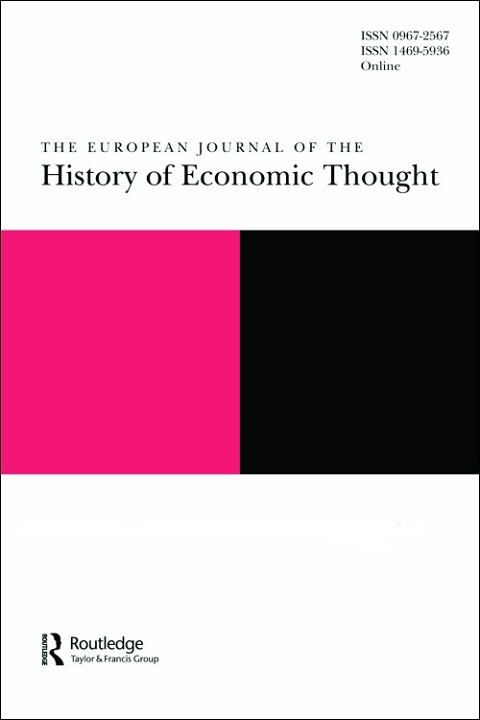
The European Journal of the History of Economic Thought
Volume 1, Issue 2, Mar 1994
Pages 273-296
- DOI: 10.1080/10427719400000003
- Print ISSN: 0967-2567
- Online ISSN: 1469-5936
Alfred Marshall and the Labour Commission 1891–1894
The early 1990s mark the centenary of Alfred Marshall's work on the Royal Commission on Labour, which enquired into labour relations, combinations of employers and employees and conditions of labour. Although Marshall contributed substantially to its Final Reports - according to Mary Paley ‘the parts dealing with Trade Unions, Minimum Wage, and irregularity of employment’ - his extensive involvement to this mammoth inquiry (it produced 49 volumes) has been infrequently recognized. In his memoir, Keynes mentioned it briefly as an ‘interruption’ to Marshall's more academic writing. Petridis does not mention it in his classical discussion of Marshall on trade unions. To commemorate this Marshall Centenary it is intended to fill this gap in the Marshall literature. After briefly examining the background to the Commission, the paper investigates the salient features of Marshall's participation in its work. These include an evaluation not only of his contributions to the Final Report, but of his performance as interrogator and more generally to assess the accuracy of his ex-post (1919) reflection that his ‘service on the Royal Commission on Labour’ was the period when he received ‘the most valuable education’ of his life ‘from working men and other witnesses, and from members of the Commission’.